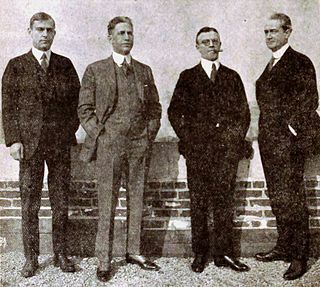A Quote by Friedrich Schiller
You worthy critics, or whatever you may call yourselves, are ashamed or afraid of the momentary and passing madness which is found in all real creators, the longer or shorter duration of which distinguishes the thinking artist from the dreamer. Hence your complaints of unfruitfulness, for you reject too soon and discriminate too severely.
Related Quotes
One day I found out that personal history was no longer necessary for me and, like drinking, I dropped it... Little by little you must create a fog around yourself; you must erase everything around you until nothing can be taken for granted, until nothing is any longer for sure, or real. Your problem now is that you're too real. Your endeavors are too real, your moods are too real. Don't take things so for granted. You must begin to erase yourself.
In the Renaissance, madness was present everywhere and mingled with every experience by its images or its dangers. During the classical period, madness was shown, but on the other side of bars; if present, it was at a distance, under the eyes of a reason that no longer felt any relation to it and that would not compromise itself by too close a resemblance. Madness had become a thing to look at: no longer a monster inside oneself, but an animal with strange mechanisms, a bestiality from which man had long since been suppressed.
True inward quietness is not that which may be produced by shutting out all outward causes of distraction -- a process which, when carried out too severely, may intensify the inward ferment of the mind, especially in the young. It is rather a state of stable equilibrium; it is not vacancy, but stability -- the steadfastness of a single purpose.
The wood-carver can fashion whatever he will. Yet his products are but toys of the moment, to be glanced at in jest, not fashioned according to any precept or law. When times change, the carver too will change his style and make new trifles to hit the fancy of the passing day. But there is another kind of artist, who sets more soberly about his work, striving to give real beauty to the things which men actually use and to give to them the shape which tradition has ordained. This maker of real things must not for a moment be confused with the maker of idle toys.
'Moonlight' undoes our expectations as viewers, and as human beings, too. As we watch, another movie plays in our minds: real-life footage of the many forms of damage done to black men, which can sometimes lead them to turn that hateful madness on their own kind, passing on the poison that was their inheritance.
Your worst parts of your life, the things that you're ashamed of will become your strongest assets in a very quick amount of time. And the implication in that is your story is all that you have so passing it on to someone else who is struggling behind you coming up the ladder helps them. And so in the spirit of service in recovery we often talk about the power of our own stories to connect with other people and show them that they too can get well. I have found that not only is that true in the recovery world, but it is true in the social world in the social milieu in which I exist.
There are so many kinds of madness, so many ways in which the human brain may go wrong; and so often it happens that what we call madness is both reasonable and just. It is so. Yes. A little reason is good for us, a little more makes wise men of some of us--but when our reason over-grows us and we reach too far, something breaks and we go insane.
There is nothing like the first hot days of spring when the gardener stops wondering if it's too soon to plant the dahlias and starts wondering if it's too late. Even the most beautiful weather will not allay the gardener's notion (well-founded actually) that he is somehow too late, too soon, or that he has too much stuff going on or not enough. For the garden is the stage on which the gardener exults and agonizes out every crest and chasm of the heart.




































